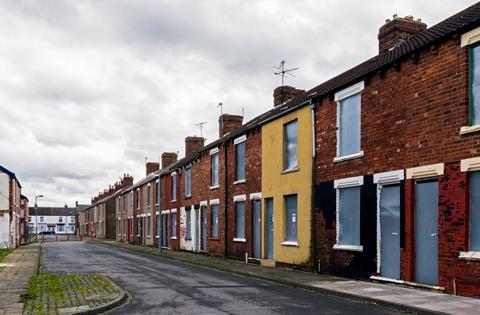Reforms also allow councils to retain 100% of additional council tax from new homes
The government has laid out a revised approach to council funding allocations in a bid to address deprivation and rectify postcode lotteries for local services in England.

The government’s first multi-year Local Governance Finance Settlement in a decade will set out its response to the Fair Funding Review 2.0, which sought to funnel investment into areas with high deprivation and levels of need.
The renewed system will determine cash allocations based on the government’s latest deprivation statistics, which revealed that Middlesbrough, Birmingham, Hartlepool, Kingston upon Hull and Manchester are the local authority districts with the highest proportions of neighbourhoods among the most deprived in the country.
Among the reforms is a commitment to ringfence at least £2.4bn for a new combined homelessness, rough sleeping and domestic abuse grant over three years, including funding for prevention services and a decreased reliance on temporary accommodation.
Meanwhile, councils will be able to retain all additional council tax from new homes without reductions in other grant allocations from central government.
Steve Reed, secretary of state for the Ministry of Housing, Communities and Local Government, said: “We are reforming the funding system that led to regional divides, postcode lotteries, and substandard public services for too many people. Our changes will make sure cash going to councils is shared out in a fairer way that follows needs.”
Outside of housing, the new system will see £2.4bn invested in children’s social care reforms and maintain a £600m recovery grant for areas with the “greatest immediate needs and less ability to raise income locally.”
It has also said it will simplify government funding by rolling 33 funding streams into five main pots for homelessness, rough sleeping and domestic abuse; public health; crisis and resilience; children, families and youth; and the revenue support grant.











No comments yet